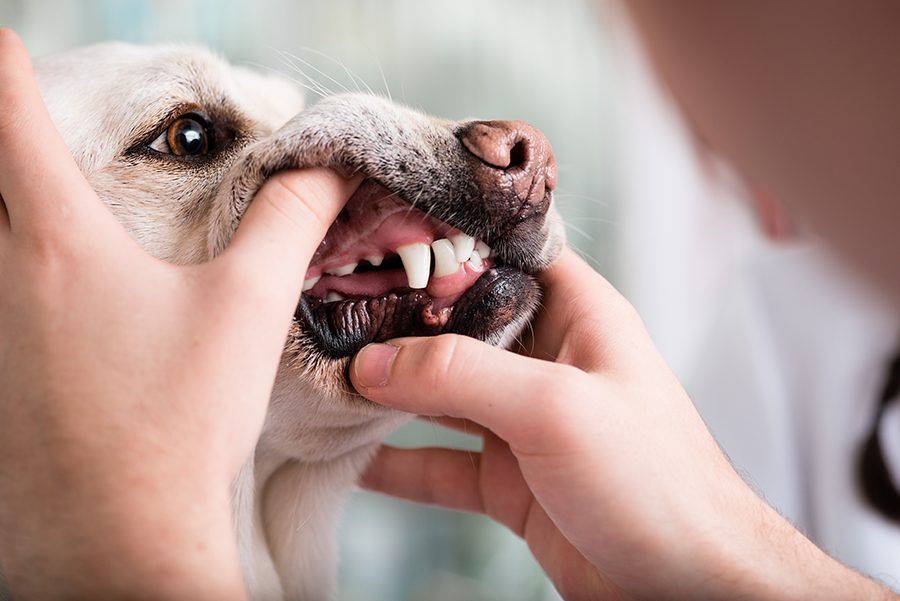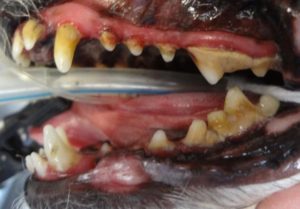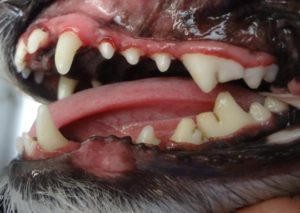The most effective way to combat dental disease is to prevent it from happening in the first place.
Preventative dental care is just as important for cats and dogs as it is for us! During your pet’s visit our veterinarians will counsel you on the best plan and products to keep you furry friend’s mouth fresh and clean!
Using these products can help prolong periods between professional dental cleanings.

Our dental services include…
Ask the veterinarian during your pet’s annual exam if a routine dental cleaning is recommended for your pet.
At Dupont Veterinary Clinic, we perform dental cleanings and tooth extractions Monday through Friday. Here are some things to know:
As a pet owner, you might be concerned when anesthesia is required—and that’s natural. However, it’s important to understand that performing dental prophylaxis on an unanesthetized animal (NAD/NPDS) is inappropriate for a number of reasons (according to the American Veterinary Dental College):
As you can see, anesthesia is a necessity for routine dental cleanings, tooth extractions, and oral surgery.


Pet owners don’t often think about dental care for their best furry friends. It’s easy to overlook since our dogs and cats can’t communicate discomfort to us. But, when you do start to think about the importance of dental care, some questions might come up.
Safe use of an anesthetic or sedative in a dog or cat requires evaluation of the general health and size of the patient to determine the appropriate drug and dose. Continual monitoring of the patient is also necessary. Veterinarians are trained in all of these procedures.
Although anesthesia will never be 100% risk-free, modern anesthetic and patient evaluation techniques used in veterinary hospitals minimize the risks in millions of dental scaling procedures that are safely performed each year in veterinary hospitals.
Prescribing or administering anesthetic or sedative drugs by a non-veterinarian can be very dangerous and it’s illegal.
To minimize the need for professional dental scaling procedures and to maintain optimal oral health, the AVDC recommends daily dental home care from an early age. This should include brushing or the use of other effective techniques, such as a dental diet and chew materials, to retard the accumulation of dental plaque. This, combined with periodic examination of the patient by a veterinarian and with dental scaling under anesthesia when indicated, will optimize lifelong oral health for dogs and cats.
In the United States and Canada, only licensed veterinarians can practice veterinary medicine. Veterinary medicine includes veterinary surgery and dentistry. Anyone providing dental services other than a licensed veterinarian or a supervised and trained veterinary technician is practicing veterinary medicine without a license and shall be subject to criminal charges.
The AVDC prefers to use the term Non-Professional Dental Scaling (NPDS) to describe dental scaling procedures performed on pets without anesthesia.